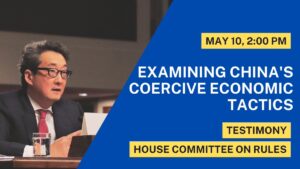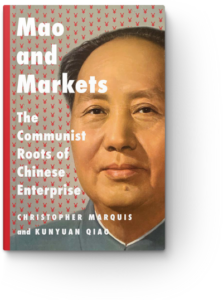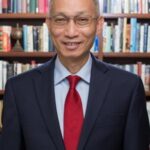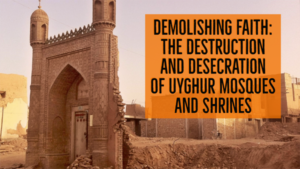 As the G7 leaders sent a strong message to Russia by inviting Volodymyr Zelensky to Hiroshima, another rival was also on their minds – China, the BBC reports:
As the G7 leaders sent a strong message to Russia by inviting Volodymyr Zelensky to Hiroshima, another rival was also on their minds – China, the BBC reports:
British Prime Minister Rishi Sunak said China posed “the greatest challenge of our age” in regards to global security and prosperity, and that it was “increasingly authoritarian at home and abroad”. And in not one but two statements, the leaders of the world’s richest democracies made clear to Beijing their stance on divisive issues such as the Indo-Pacific and Taiwan. But the most important part of their message centred on what they called “economic coercion“.
His views find an echo within both major parties in the United States.
The U.S. made a “gamble” at the end of the first Cold War, said Senator Marco Rubio, a senior Republican who sits on the Foreign Relations Committee: “If we create this international economic order led by the U.S. and the West built on the global commitment to free trade, the notion [was] that trade and commerce would bind nations together,” he told POLITICO.
 “I think it’s fair to say that gamble failed,” the Florida lawmaker concluded, calling China and Russia “more authoritarian” and “more violent” than at the end of the last Cold War — a line that National Security Adviser Jake Sullivan repeated almost verbatim at a Brookings Institution forum in April.
“I think it’s fair to say that gamble failed,” the Florida lawmaker concluded, calling China and Russia “more authoritarian” and “more violent” than at the end of the last Cold War — a line that National Security Adviser Jake Sullivan repeated almost verbatim at a Brookings Institution forum in April.
A security expert close to the ruling Communist Party identified five groups that America might use to infiltrate Chinese society, The Economist reports: rights lawyers, underground religious activists, dissidents, internet leaders and—most chillingly—ruoshi qunti or “vulnerable groups”. A decade on, gay groups, feminists, labor activists and ethnic minorities are all treated as potential tools of subversion by a hostile West.
When two opponents in a fierce, zero-sum competition resort to the same playbook, it is unlikely to work equally well for both of them. This increasingly seems to be the case in the US-China rivalry, notes Minxin Pei. Presidents Joe Biden and Xi Jinping have both prioritized national security in their relationship, willingly forgoing the benefits of open trade and investment, he writes for Bloomberg:

Minxin Pei
The recent crackdowns reveal the Chinese system’s proclivity toward excess. Even though Xi has urged a balance between development and security, Chinese officials know full well that even a minor lapse in security could get them into deep trouble, while they will not be held responsible for unrealized economic potential. The Chinese incentive structure encourages its officials to be far more zealous in chasing threats than promoting growth.
This is in sharp contrast with the US system, often derided by hawks as too focused on profits. The political influence of corporate America constrains potential excess in Washington, adds Pei, a board member of the National Endowment for Democracy (NED). The differences in how democracy and autocracy operate mean that the US is far more likely to achieve a better balance between security and the economy than China is.
The CCP and Xi Jinping want us to pay no attention to the real China — declining population, economic and social dislocations, human-rights abuses — but to focus instead on the misdirection: the shows of strength, the grandiose and threatening pronouncements, adds Therese Shaheen, CEO of US Asia International and former chairman of the State Department’s American Institute in Taiwan.
It is important that we not be deluded, as we allowed ourselves to be when we believed that the PRC wanted to be part of the liberal world order. As the indispensable global superpower, we should keep our cool, watch skeptically, accept China’s inevitable decline, and design policies based on the reality that the CCP desperately wants to hide behind the curtain, she writes for National Review.
#Russia & #China are losing the @ThinkDemocracy‘s #sharppower global battle for public opinion, @FridaGhitis contends. https://t.co/blQd6lMovk
— Democracy Digest (@demdigest) May 25, 2023
In September, the National Endowment for Democracy (NED) published excerpts of interviews that the International Forum for Democratic Studies conducted with international experts on the government’s actions against Xinjiang diaspora groups, notes the State Department’s latest report on International Religious Freedom:

National Endowment for Democracy (NED)
The senior director of research at the NGO Freedom House told the forum, “Beijing’s primary tool in its global campaign of transnational repression is bilateral pressure…Transnational repression against Uyghurs as a community is well known and well documented by numerous groups, including the Uyghur Human Rights Project, Safeguard Defenders, and Freedom House.”
A University of California Berkeley researcher said, “Countless members of the Uyghur diaspora have also experienced the long reach of the CCP’s authoritarian state in the form of relentless harassment, intimidation, and coercion,” noting this type of repression had increased since 2017. RTWT







